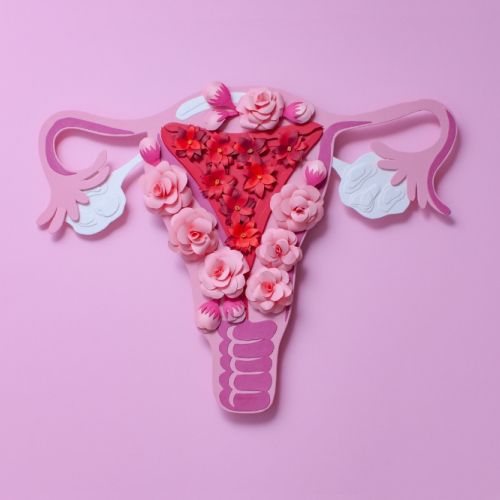Top Causes of Male Infertility

We all know smoking is terrible for health – and that is true with reproductive health as it is in other areas. A 2016 report from the journal European Urology looked at studies on smoking and the health of semen. Looking at the cases of more than 5000 European men, the research determined that smoking led to lower sperm movement, poor shape (or morphology) of the sperm, and lower sperm count.
High paternal age
During the 2000s, the age of the father has increased, on average, for new births. Women who are older than 35 are likelier to experience difficulties (infertility, complications with pregnancy, miscarriage, etc.), and that is probably a more common topic of public discussion. However, higher paternal age can also lead to a greater chance of congenital disease and infertility.
Paternal age is a significant factor in reducing the quality of ejaculate (specifically, the motility or activeness of sperm, and its volume). The reason that is the case is a matter for debate; examples issues include poor functioning of the seminal vesicle (leading to loss in volume and possibly issues with the prostate), prostate degradation (loss of protein and water, in turn lowering volume and motility). Research from Kidd et al. found that as the man gets older, the volume of semen declines, morphology or form may become inconsistent, and activeness may be reduced, but the actual concentration of sperm within the semen will not necessarily go down. That study looked at two age groups, 30 and 50 years old. Among those who were in the older group, there was a reduction in amount (3-22% reduced), motion (3-37% reduced), and form changeability (4-18% reduced).
DNA fragmentation / low antioxidants
Abnormal protamine compaction and abnormal protamination might cause the DNA to become damaged within sperm. These problems occur because there are histones that fail to become protamines. Protamine deficiency results. That scenario applies to 15% of cases. The #1 reason that you will see DNA fragmentation, though – present in an incredible 80% of cases – is because of oxidative stress. That stress takes place when there are insufficient reserves of antioxidants – so get those in your diet – or when more reactive oxygen species are generated. The oxidative impact means that a man becomes at greater risk of experiencing chronic inflammation or an infection.
You can damage your DNA because PARP and caspase3 become activated. PARP-1 is also known to cause other problems, such as facilitating nucleosome binding (which leads to the creation of chromatin structures that are “transcriptionally repressed,” according to Sharma et al). Also in the presence of PARP-1, additional protamines cause the nucleus to become compacted, and the nucleus may be restructured. Apoptosis is activated in these situations. None of this is good.
Research from Moskovtsev et al. demonstrated that when semen became abnormal in men who were infertile, that aligns with DNA damage. DNA damage has also been shown by various studies to be linked to higher paternal age. One way that DNA abnormalities are studied is through the DNA Fragmentation Index (DFI). When the DFI was used for analysis in comparing men who were under age 30 to men who were 45 or over, the figure was more than double among the older than the younger group (32.0% vs. 15.2%). The DFI was 26.4%, 201.%, and 19.4% for members of older to younger age brackets (40-45 years, 35-40 years, and 30-35 years).
Other research, completed by Singh et al., found that the amount of significantly damaged DNA sperm was substantially higher among an older than a younger group studied (36-57 years vs. 20-35 years).
Finally, a study that looked at 215 couples analyzed paternal age of 55 vs. 25. Again, DFI increased with age. As indicated by all these studies, this cause is well-established.
Testosterone harm
Supplementing with testosterone is a way to improve sex drive in men, but it can also make it less likely that the man will be able to father a child.
A large portion of the men who looked for help at two American-based infertility clinics studied had been taking testosterone supplements. The majority of them saw a much higher sperm count once they stopped taking testosterone.
The research was based on clinics in Kansas and Alabama, with data that was collected between 2005 and 2011.
Getting help for infertility
Are you suffering from issues with male infertility? At the California Center for Reproductive Health, we are a board-certified specialist in reproductive endocrinology and infertility. “I cannot say enough good things about Dr. Mor and his office!” said one of our patients. See our testimonials.
Eliran Mor, MD
Reproductive Endocrinologist located in Encino, Valencia & West Hollywood, CA
FAQ
What does a reproductive endocrinologist and infertility specialist do?
Reproductive endocrinology and Infertility is a sub-specialty of Obstetrics and Gynecology. In addition to managing medical and surgical treatment of disorders of the female reproductive tract, reproductive endocrinologist and infertility (REI) specialists undergo additional years of training to provide fertility treatments using assisted reproductive technology (ART) such as in vitro fertilization.
Reproductive endocrinologists receive board certification by the American Board of Obstetrics and Gynecology in both Obstetrics and Gynecology and Reproductive Endocrinology and Infertility.
When should I see an REI specialist?
In general, patients should consider consulting with an REI specialist after one year of trying unsuccessfully to achieve pregnancy. The chance of conceiving every month is around 20%, therefore after a full year of trying approximately 15% of couples will still not have achieved a pregnancy.
However, if a woman is over the age of 35 it would be reasonable to see a fertility specialist earlier, typically after 6 months of trying.
Other candidates to seek earlier treatment are women who have irregular menses, endometriosis, fibroids, polycystic ovary syndrome (PCOS), women who have had 2 or more miscarriages, or problems with the fallopian tubes (prior ectopic pregnancy).
What are the reasons we are having trouble conceiving?
Approximately 1/3 of the time cause for infertility is a female factor, 1/3 of the time a male factor, and the remaining 1/3 a couples’ factor.
At CCRH, we emphasize the importance of establishing a correct diagnosis. Both partners undergo a comprehensive evaluation including a medical history and physical exam.
Furthremore, the woman’s ovarian reserve is assessed with a pelvic ultrasound and a hormonal profile. A hysterosalpingogram (HSG) will confirm fallopian tube patency and the uterine cavity is free of intracavitary lesions. A semen analysis is also obtained to evaluate for concentration, motility, and morphology of the sperm.
Additional work up is then individualized to direct the best possible treatment option for each couple.
What is IVF? What is the process like?
In vitro fertilization (IVF) is the process that involves fertilization of an egg outside of a woman’s body.
The process starts with fertility drugs prescribed to help stimulate egg development. In your natural cycle, your body is only able to grow one dominant egg, but with stimulation medication we can recruit multiple eggs to continue to grow. After about 8-10 days of stimulation, the eggs are surgically retrieved and then fertilized with sperm in a specialized laboratory. Fertilized eggs are then cultured under a strictly controlled environment within specialized incubators in the IVF laboratory for 3-5 days while they develop as embryos. Finally, embryos (or an embryo) are transferred into the uterine cavity for implantation.
Should I have IVF?
Before deciding if IVF is the right choice, it’s important to sit down with an REI specialist to discuss available treatment options. For some people, other methods such as fertility drugs, intrauterine insemination (IUI) may be the best first choice treatment. At CCRH, we believe each individual couple is unique and not everyone needs IVF.
Is the IVF procedure painful?
While not painful, the fertility medications may some side effects including headaches, hot flashes, mood swings, and bloating. The injection sites may also bruise.
Will IVF guarantee a baby?
Unfortunately, no. Many people think once they start IVF it’s a matter of time that they will be pregnant and have a baby. But according to national statistics per the Society of Assisted Reproduction (SART), on average 40% of assisted reproduction cycles achieve live births in women under age 35. The chances of success then continue to decrease with advancing age.
At CCRH, we employ only evidence-based interventions to ensure patient safety and optimal outcome. While we cannot guarantee a baby, we guarantee that you will receive the best, most advanced, personalized care to help you maximize your chance of a baby.
What is the success rate for IVF?
The average IVF success rate (success measured in live birth rate) using one’s own eggs begins to drop around age 35 and then rapidly after age 40. This is due to the decline in egg quantity and egg quality as a woman ages.
Our clinic’s success rate consistently beats the national average year after year.
Do insurance plans cover infertility treatment? How much does IVF cost?
Individual insurance plans often do not have any coverage for infertility treatments. If you have a group plan, you can call members services to see if they have coverage for infertility (including consultation/workup and IVF).
After your consultation with our REI specialist, one of our dedicated account managers with sit with you to go over the cost of treatment.




